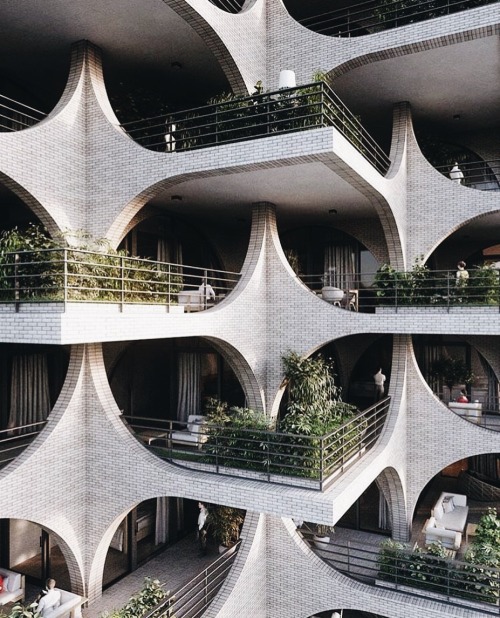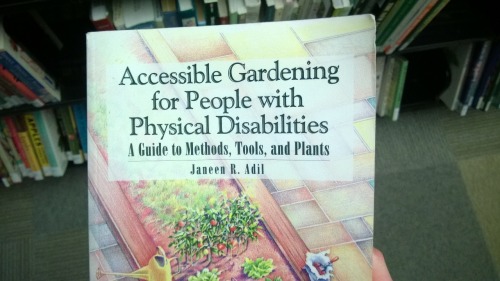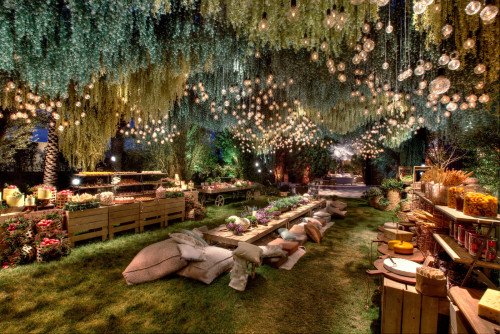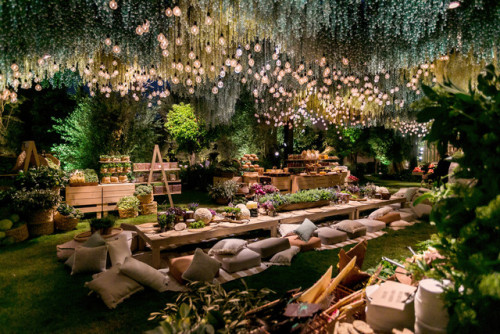I Love These Penda Architects Terrace Design. Tel Aviv.

I love these Penda architects terrace design. Tel Aviv.
More Posts from Green-notebooks and Others

this book is worth more than a dozen restaurants that grow their own microgreens on the roof



earlier this month it was 120 degrees in Australia , but yeah lets continue to mock those trying to save us in the 12 years we have left to slow climate change’s effects.
What is the worst thing that could happen if we listen to scientists and change our ways, and then it turns out they were lying?
Slowly dying in a mad max hell world to own the libs I guess.
TIL the “fresh is best” culture led consumers to wrongly see frozen produce as lower quality. It turns out frozen fruit & veg are equally nutritious. The freezing process slows nutrient loss which occurs after harvesting. Researchers found no real nutritional differences overall.
via reddit.com
More on solarpunk education:
So I made a big post about cooperative, age-appropriate games as a solarpunk education method, but in my ideal solarpunk world that would only be one aspect of education. Here are some other education ideas bouncing around in my head. Like cooperative games, they all require a lot of time, knowledgeable teachers, and community investment, but I think they would lead to healthier, enthusiastic people, fully prepared to live well and be lifelong learners.
Food Science Education: Starting at a young age with simple gardening and cooking, stuff that young kids can get really excited about. As kids age, folding in the complete science of where food comes from, its relationship with the ecosystem, how to preserve it, and how to prepare it.The idea being that by the time you’re an adult you should have the tools to competently feed yourself even if you end up focusing on other things.
Relationship Education: An improvement on sex ed. Much of the same content, but expanded with more information for all genders and sexualities, and good, non-scare tactic science on the human body, reproduction, contraceptives, stds, and common communicable illnesses. Also, workshops on healthy relationship communication, self-care, meditation/introspection/self-knowledge, basic first aid, how to help friends in the midst of crisis or mental illness, how to recognize predatory/manipulative/abusive behaviors (in sexual situations and otherwise oh my god it’s so important, why aren’t we taught this early and often?), some basic childhood development stuff.
Artistic Expression & Upcycling: Art classes which would cover art theory and allow for a lot of self-expression, but would also teach young adults to make and repair their own clothing, use basic woodworking tools, work with ceramics, safely fiddle with metals and basic electronics, and other practical “specialty” skills necessary for a world with less waste.
Rotating Apprenticeships: Starting out as small group field trips for younger kids, and evolving into longer choice-based apprenticeships in areas of interest, maybe taking up one day per week for high school aged kids. The community members involved in this experience wouldn’t necessarily give lessons on their livelihood – for example a farmer with a deep knowledge of medieval history and geology could focus on one of those subjects if they chose. This would give adults in the community a chance to delve deeper into subjects they loved, and kids a chance to learn a subject from someone truly enthusiastic.
Questing/Journeyman years/other travel: I know there are plenty of posts on solarpunk travel, but in an educational context I imagine it as a continuation of rotating apprenticeships. This would be a time for young adults to visit people and places related to their areas of interest. It could be very specific (like meeting and working with 5 scientists on 5 continents while studying food sustainability) or a more general exploration (visiting some great museums, WOOFing, contributing to public art, and journaling about the experience while trying to decide what to do next).
Independent Project Salons: This would be a way to tie together celebration, community, and education. Informal salon settings would be a great place for young adults doing independent study or in the midst of travel to meet and talk about their experiences and ideas, and maybe show off their work. Possibly hosted by retired folks who could organize food and drink, introduce topics and guests, and add the benefit of their own experiences.
What other kinds of solarpunk educational programs do you love the idea of?



By Designlabexperience
i learned that Binghamton University researchers have been working on a self-healing concrete that uses a specific type of fungi as a healing agent. When the fungus is mixed with concrete, it lies dormant until cracks appear, when spores germinate, grow and precipitate calcium carbonate to heal the cracks (x)






Moss FM
A radio which uses moss as biological solar panels in plant microbial fuel cells!

“The project was designed to transform a wide, automobile-oriented thoroughfare to a pedestrian-friendly, neighborhood center.
Travel lanes were reduced from five to two while adding five modern roundabouts, improved sidewalks, medians, landscaping, and increased angle parking. Traffic calming measures were installed on less busy side and parallel streets to avoid potential traffic diversion.“
Here’s the before and after:


“Pedestrians once had 70 feet of pavement to cross at intersections. With the roundabouts, they now cross 12–14 feet of pavement at a time with refuge islands in the middle”
“due to the 15 mph design speed of the roundabouts and traffic calming, many bicyclists feel comfortable riding with traffic on La Jolla Boulevard“
“The traffic count remained approximately the same (23,000 vehicles per day before, 22,000 after), but walking, bicycling, transit use, on-street parking and retail sales all climbed to much higher levels, the city reports. Retail sales rose 30 percent and noise levels dropped 77 percent. Because traffic moves slower, businesses report higher visibility.
As a result of the roundabouts and traffic calming, speeds were reduced from 40–45 mph to 19 mph, according to city transportation engineers. “The once busy boulevard has been transformed into a slow-paced street with roundabouts, landscaped street dividers and diagonal parking,” notes the LaJolla Light
Traffic crashes fell by 90 percent. The project has helped revitalize La Jolla Boulevard, acting as a catalyst to several new mixed-use developments, a 139-unit condominium development, and a major drugstore.
“Motorists,” Burden reported in The San Diego Union- Tribune in February 2017, “understandably dreaded this change before it was made. But they found that instead of waiting 24 seconds for a pedestrian to cross 70 feet of road, they now only wait 3–4 seconds, or don’t have to wait at all. Businesses that feared the loss of customers arriving in cars actually improved their trade. … Today motorists are getting to their destinations in less time, because they aren’t stopping.”“
(I’ve added bold for emphasis; the above sections are taken from different parts of the article, click through the link for the whole thing)
This goes to show that designing for a better pedestrian experience is not only safer, but also good for the local economy.
Taking down a tree in 30 seconds | source
Does anyone else really like the whole mall aesthetic (probably an 80′s/90′s kid thing) but instead of consumerism there’s micro-apartments, a whole lot more vegetation, and a commons area? Maybe with keeping the whole food court thing as a place for people to eat together.
-
 headlong-flight liked this · 2 weeks ago
headlong-flight liked this · 2 weeks ago -
 gibsonsj200 reblogged this · 2 weeks ago
gibsonsj200 reblogged this · 2 weeks ago -
 hinterlandman reblogged this · 2 weeks ago
hinterlandman reblogged this · 2 weeks ago -
 hinterlandman liked this · 2 weeks ago
hinterlandman liked this · 2 weeks ago -
 grab92 liked this · 1 month ago
grab92 liked this · 1 month ago -
 kxxxlczlxski liked this · 1 month ago
kxxxlczlxski liked this · 1 month ago -
 brainmalfunctioninaction liked this · 1 month ago
brainmalfunctioninaction liked this · 1 month ago -
 deepdesires861 liked this · 1 month ago
deepdesires861 liked this · 1 month ago -
 burak-b reblogged this · 1 month ago
burak-b reblogged this · 1 month ago -
 malikmaluk liked this · 1 month ago
malikmaluk liked this · 1 month ago -
 aimieipiedioalpatibolo reblogged this · 1 month ago
aimieipiedioalpatibolo reblogged this · 1 month ago -
 mee-rrakki liked this · 1 month ago
mee-rrakki liked this · 1 month ago -
 f-drko reblogged this · 1 month ago
f-drko reblogged this · 1 month ago -
 divabowie liked this · 1 month ago
divabowie liked this · 1 month ago -
 greatonechosen liked this · 1 month ago
greatonechosen liked this · 1 month ago -
 forgottenmirr0r liked this · 1 month ago
forgottenmirr0r liked this · 1 month ago -
 dan-tad liked this · 1 month ago
dan-tad liked this · 1 month ago -
 misterfox2 liked this · 1 month ago
misterfox2 liked this · 1 month ago -
 vhincent liked this · 1 month ago
vhincent liked this · 1 month ago -
 bewaretheconjure reblogged this · 1 month ago
bewaretheconjure reblogged this · 1 month ago -
 bittenandbruised999 liked this · 1 month ago
bittenandbruised999 liked this · 1 month ago -
 laa-solassitude reblogged this · 1 month ago
laa-solassitude reblogged this · 1 month ago -
 vague-sentiments liked this · 1 month ago
vague-sentiments liked this · 1 month ago -
 profumidimalinconia reblogged this · 1 month ago
profumidimalinconia reblogged this · 1 month ago -
 profumidimalinconia liked this · 1 month ago
profumidimalinconia liked this · 1 month ago -
 voidhymn1 reblogged this · 1 month ago
voidhymn1 reblogged this · 1 month ago -
 fantacoraline liked this · 1 month ago
fantacoraline liked this · 1 month ago -
 hot-dogpress liked this · 2 months ago
hot-dogpress liked this · 2 months ago -
 nlewy reblogged this · 2 months ago
nlewy reblogged this · 2 months ago -
 mango-kiwiii reblogged this · 2 months ago
mango-kiwiii reblogged this · 2 months ago -
 mixedmonet liked this · 3 months ago
mixedmonet liked this · 3 months ago -
 colourful-dimension reblogged this · 3 months ago
colourful-dimension reblogged this · 3 months ago -
 jnssq reblogged this · 3 months ago
jnssq reblogged this · 3 months ago -
 peculiariedades liked this · 3 months ago
peculiariedades liked this · 3 months ago -
 flux-- reblogged this · 3 months ago
flux-- reblogged this · 3 months ago -
 f-ernand-o liked this · 3 months ago
f-ernand-o liked this · 3 months ago -
 d1manche reblogged this · 3 months ago
d1manche reblogged this · 3 months ago -
 archetypum liked this · 3 months ago
archetypum liked this · 3 months ago -
 viajenatural reblogged this · 3 months ago
viajenatural reblogged this · 3 months ago -
 nz-r liked this · 3 months ago
nz-r liked this · 3 months ago -
 depaysser reblogged this · 4 months ago
depaysser reblogged this · 4 months ago -
 foreverinmyhead reblogged this · 4 months ago
foreverinmyhead reblogged this · 4 months ago -
 iamgroot65 liked this · 4 months ago
iamgroot65 liked this · 4 months ago -
 valdinecosta49 reblogged this · 4 months ago
valdinecosta49 reblogged this · 4 months ago -
 valdinecosta49 liked this · 4 months ago
valdinecosta49 liked this · 4 months ago -
 alexbyrth liked this · 4 months ago
alexbyrth liked this · 4 months ago